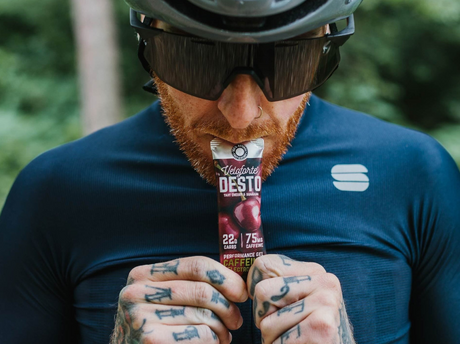definition
The German meaning of the Latin "Regeneratio" is rebirth, which is pretty apt. Regeneration is understood to mean processes that lead to the restoration of physical and mental resilience after physical exertion. Muscles, bones, tendons and ligaments are used in every training session. In addition, hard training leads to small microscopic injuries, which cause inflammatory conditions and thus temporarily weaken the immune system.
Recovery is often underestimated by many runners, but it is an important part of training to enable an increase in performance. Whether you regenerate quickly or not depends on numerous factors. According to the current state of research, however, nutrition is at the forefront and is even more important than running out or stretching.
Not only proteins ensure regeneration and protein synthesis
3 goals of recovery nutrition:
• Rehydration – replenishing fluid levels
• Replenishment of carbohydrate stores (glycogen)
• Muscle regeneration and muscle building (muscle protein synthesis)
Consuming carbohydrates and proteins at the same time can reduce muscle damage. A 3:1 to 5:1 mixture of carbohydrates and proteins is recommended. Depending on the intensity and duration of the training, 0.8 - 1.2 g carbohydrates/kg/hour and 0.2 - 0.4 g protein/kg/hour in relation to body weight are recommended in the early regeneration phase.
Don't forget your fluid needs!
Rehydration is most likely to be neglected during the recovery period. Post-exercise weight loss reflects fluid loss. For every pound of body weight lost, ~1.5L of fluid is recommended. Smaller distributed receipts are preferred over very large amounts. In the case of high temperatures and loss of sweat, electrolytes should also be supplied.
Conclusion
For effective regeneration, the body needs the right nutrition in the optimal amount. Diet, rest days and sleep are the keys to good recovery. Note: After training, it can often be too late. Take care of your strenuous and long units, otherwise the regeneration will suffer and later you can get hungry.

-> Sport hunger tip: To cover the mixture of carbohydrates and proteins described above, we recommend recovery drinks from Moonvalley , Tailwind and GU . If you have a slightly lower carbohydrate requirement, e.g. because you are planning to visit an Italian after training anyway, we recommend the vegan Recovery Protein Mix from Näak . To make up for lost fluids and electrolytes, we prefer Bix Recovery and Skratch Labs Hydration Mix.

Author: Nora Havlinova, MSc nutritionist, trail runner (On Running)
Source: Kim J, Kim EK. Nutritional Strategies to Optimize Performance and Recovery in Rowing Athletes. nutrients. 2020 Jun 5;12(6):1685. doi: 10.3390/nu12061685. PMID: 32516908; PMCID: PMC7352678.










1 comment
Hallo,
in den meisten Sportarten wird die Regeneration viel zu wenig betrachtet. Der Körper braucht nach einem anstrengenden Wettkampf Regenration. Dazu zählt nicht nur Schlaf und Entspannung. Auch die richtige Ernährung, die ich im Übrigen innerhalb meines Blogs schon thematisiert habe. ( https://www.sandplatz-tennis.de/464/sport-ernaehrung-im-tennis/ ) Viele Leistungssportler ernähren sich mittlerweile vegan. Früher wurde das müde belächelt. Aber es gibt genügend Beispiele, dass vegane Ernährung wirklich tolle Ergebnisse erzielt.
Was ich auch häufig sehe: Im Amateursport werden die Ergebnisse des Wettkampfes oder Trainings durch den regelmäßigen Konsum von Alkohol wieder wett gemacht. Sportler können dem Körper fast Nichts Schlimmeres antun. Der Stoffwechsel ist gehemmt und Alles im Körper gerät in Schieflage. Regeneration sieht jedenfalls anders aus.
Viele Grüße
Ronny